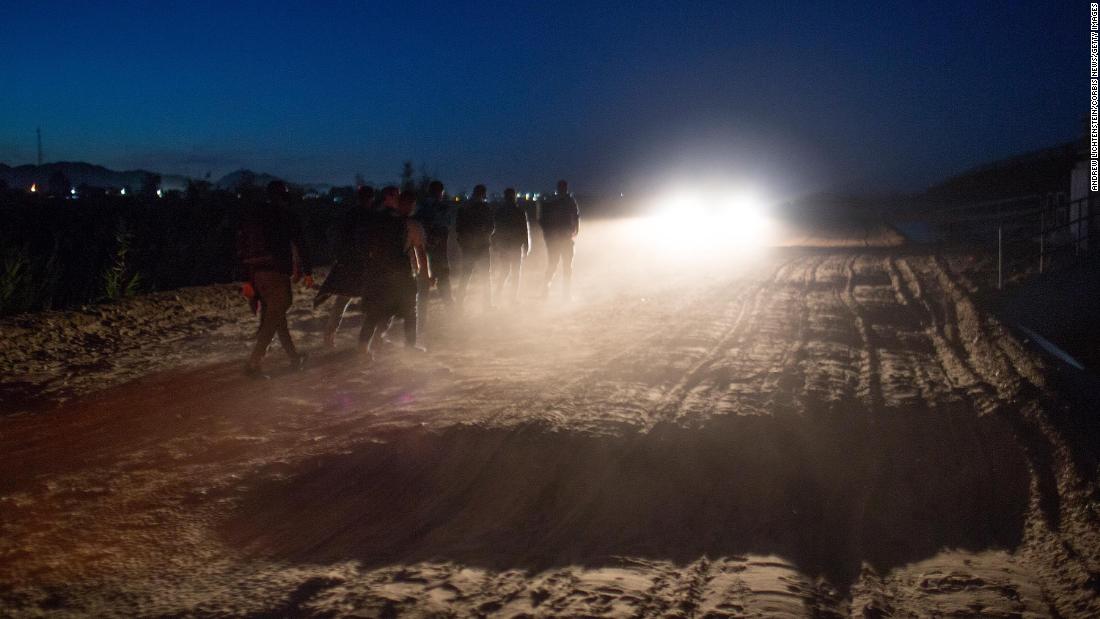
Senior administration officials on Wednesday broadly outlined the pillars of the Biden administration's plan, including addressing economic insecurity and inequality, combating corruption, promoting respect for human rights, countering and preventing violence, and tackling sexual, gender-based and domestic violence.
"For this strategy to be successful, we will have to undertake sustained effort, which is both hard work over time, but also a very hard-nosed approach to having an impact on the ground for the people of the region who are suffering so badly," an official said, conceding that it will be a long-term effort.
The administration's outline of its approach comes after an increase in migrants crossing the US-Mexico border became a political liability earlier this year, overwhelming border facilities and making headlines for poor conditions. The severity of the situation prompted President Joe Biden in late March to tap Harris to oversee efforts with Central American countries to stem the flow of migrants to the US southern border, mimicking Biden's own efforts in 2014 and 2015.
"I asked her, the VP, today, because she's the most qualified person to do it, to lead our efforts with Mexico and the Northern Triangle, and the countries that can help, need help in stemming the movement of so many folks, stemming the migration to our southern border," Biden told reporters at the time.
An official said Wednesday that the administration studied Biden's previous efforts to assess what succeeded and what areas could be improved and built upon. Officials cited ongoing consultation with people in the region, civil society groups and governments -- partnerships that Harris underscored in a cover message on the strategy.
"At this writing, we have already received commitments from the governments of Mexico, Japan, and Korea, and the United Nations, to join the United States in providing relief to the region," Harris said in the message. "Our Administration is also working hand-in-hand with foundations and non-profits to accelerate efforts in Central America."
Since March, the US has allocated over $250 million in humanitarian relief, provided more than 10 million Covid-19 vaccine doses to the Northern Triangle, and engaged the private sector for additional investment in the region.
The initial group of 12 companies and organizations who committed to the effort "offered to provide $750 million in resources, and established a non-profit organization to support economic development efforts in the region -- The Partnership for Central America," according to the newly released strategy. "These initial commitments will provide financial services to small business owners, internet access and digital banking to rural communities, housing for low-income families, and reduced barriers to higher education."
Senior administration officials also previewed a "collaborative migration management strategy" that entails in part making legal pathways to the United States and to other countries more accessible, be it via labor pathways or expanding resettlement.
"It's really premised on this idea that as we're seeking to improve the conditions on the ground in Central America and build hope under the leadership of the Vice President, we understand that there will continue to be demand to migrate," an official said.
Arrests of migrant families have grown in recent months even as the Biden administration has sought to dismantle a number of the hardline immigration policies championed by former President Donald Trump.
In June, Border Patrol apprehended more than 50,000 migrant families, up from 40,815 in May, according to the latest available US Customs and Border Protection data.
The fraught situation has prompted Harris and her staff to emphasize that she does not manage the southern border in the face of criticism from Republicans.
In one of the latest indications of the Biden administration's wariness over migrants, including those seeking asylum, journeying to the US southern border, the Biden administration said earlier this week that it is planning to speed up deportations for some migrant families who cross the US-Mexico border. And asked during a CNN town hall last week about Harris' "don't come" message to migrants, Biden reiterated that "they should not come."
July 29, 2021 at 05:05PM
https://www.cnn.com/2021/07/29/politics/migration-root-causes-white-house-strategy/index.html
White House outlines 'hard-nosed approach' to tackling root causes of migration - CNN
https://news.google.com/search?q=hard&hl=en-US&gl=US&ceid=US:en
No comments:
Post a Comment